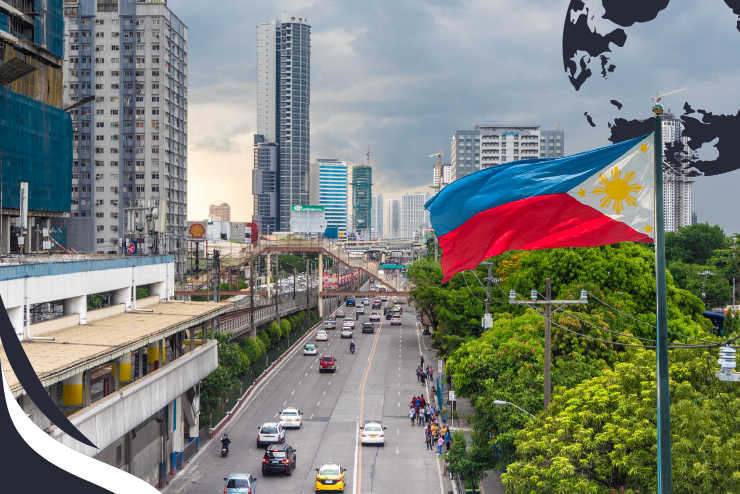Why Quality-Focused Australian Firms Choose the Philippines for Offshoring
- Pierre Paul Collins
- Jul 14, 2025
- 6 min read

Over the past decade, offshoring has become an integral part of how Australian businesses operate, particularly those aiming to stay competitive in fast-moving industries. What began primarily as a cost-cutting measure has steadily evolved. Today, it’s no longer just about lowering overheads. It’s about strengthening capability, accessing skilled talent that’s increasingly hard to find locally, and building high-performing offshore teams that support long-term growth.
Australia’s labour market remains tight, especially in sectors such as accounting, IT, digital marketing, healthcare, and customer experience. Wage pressures and ongoing skills shortages have left many businesses struggling to meet demand without compromising on quality. That’s why offshoring, when done well, has emerged as a smart, scalable solution.
According to the International Trade Administration (2023), Australian companies offshoring to the Philippines report staffing cost savings of up to 60%. But cost is just the starting point. The true value lies in what those savings unlock, investment in client acquisition, updated systems, staff development, or even entering new markets. This kind of reallocation improves overall business operations and helps firms scale faster than their current setup allows.
And this is where the Philippines stands out, particularly for companies seeking quality assurance offshoring in the Philippines.Unlike some offshoring destinations that focus solely on volume and price, the Philippines delivers both value and quality. Over the last two decades, it has built a solid reputation for reliable, customer-focused offshore outsourcing solutions that meet Western standards. For Australian businesses, that blend of technical competence, cultural alignment, and responsiveness makes the working relationship feel less like outsourcing and more like building a direct extension of their local team.
In this article, we’ll explore why Australian firms that prioritise quality assurance in offshoring are increasingly choosing the Philippines. We’ll define what “quality” really means in the Australian business context, examine how Philippine providers meet those expectations, and show why this partnership works so well across industries like finance, e-commerce, IT, and healthcare.
What “Quality-Focused” Really Means for Australian Businesses

For many Australian firms, particularly those operating in regulated, high-trust industries, quality is non-negotiable. It isn’t just about ticking boxes. It’s what separates a business that scales sustainably from one that runs into reputational or compliance risks.
When we talk about “quality-focused” companies, we’re referring to businesses that value accuracy, consistency, reliability, and service delivery that meets or exceeds expectations. This includes compliance with industry standards, careful data handling, and a high degree of accountability. In sectors such as healthcare, accounting, or IT, even a single mistake can result in serious consequences, operational, legal, and reputational. Australian customers and clients also expect clear communication, fast resolution times, and a high standard of care. There’s a well-established cultural emphasis on transparency, ethics, and professionalism. Doing things properly and owning it when things go wrong — is expected.
That standard doesn’t drop when work is outsourced. In fact, it becomes more important. Businesses that prioritise quality assurance in offshoring understand that outsourcing is not just a cost-saving tactic, it’s a relationship built on trust, collaboration, and aligned expectations. To meet those expectations, every stage of outsourcing needs to be intentional. From choosing the right provider to onboarding and performance monitoring, firms expect clarity and accountability throughout the offshoring process steps.
These firms aren’t chasing the lowest hourly rate. They’re looking for partners who understand their industry, communicate clearly, and can deliver under pressure, partners who take the time to learn the business and integrate into day-to-day operations.
Why the Philippines Aligns with Australian Standards

Skilled Workforce with Strong Communication
The Philippines produces more than 500,000 college graduates each year, with many holding degrees in finance, business, health sciences, communications, and IT. English proficiency is among the highest in Asia, and the accent is neutral, which often makes it easier for Australian clients and their customers to connect with offshore staff.
But it’s not just about language, it’s about comprehension. Filipino professionals are known for being highly responsive, context-aware, and detail-oriented. They don’t just complete tasks, they understand why those tasks matter.
In practice, this makes delegation easier and more effective. Many Australian companies start by offshoring simple administrative work. But once trust is built, they quickly move on to more strategic functions, such as reporting, direct customer contact, or project management. The consistency and professionalism of the workforce gives leaders confidence to expand.
Shared Values and Cultural Compatibility
The cultural compatibility between Australia and the Philippines is one of the biggest reasons The cultural compatibility between Australia and the Philippines is one of the biggest reasons this partnership works so well.
Filipino professionals tend to share many values with their Australian counterparts: punctuality, respect for hierarchy without rigid formality, a collaborative mindset, and pride in delivering good work. The service-oriented culture and high emotional intelligence of many Filipino workers also translate into a genuinely customer-focused approach.
From my own experience working with AU-based clients, the feedback is often the same: communication feels natural, expectations are understood quickly, and the working relationship doesn’t require constant course correction. That kind of alignment makes a real difference in building virtual teams offshore that feel local in practice.
Commitment to Quality and Operational Maturity
Quality assurance offshoring in the Philippines isn’t an aspiration — it’s already happening. The country’s BPO and IT-BPM industries are well established, with many providers having serviced global brands for years. ISO-certified operations, client-dedicated quality assurance teams, structured onboarding, and regular SLA tracking are standard practice.
Many Australian businesses are surprised by the level of professionalism they encounter, from security protocols and compliance documentation to training systems that rival those of in-house teams. Even mid-sized providers have matured their operations to support long-term, high-accountability partnerships.
These firms aren’t simply offering manpower. They’re offering offshore outsourcing solutions that are fully aligned with Australian compliance requirements and customer expectations.
Infrastructure That Supports High Standards
The Philippines has invested heavily in developing infrastructure that supports international operations. Major outsourcing cities like Metro Manila, Clark, Cebu, and Davao offer business parks with enterprise-grade internet, 24/7 power backup, and secure, purpose-built office spaces.
During the pandemic, Philippine providers adapted quickly, enabling hybrid and remote models while maintaining data security and operational continuity. Many now offer flexible, scalable setups that support business continuity even across distributed teams.
Cybersecurity is a particular area of focus. Leading providers meet global data security standards and align with laws like Australia’s Privacy Act and the EU’s GDPR. With cyber risks continuing to rise, this attention to digital safety is non-negotiable for many Australian businesses and the Philippines is delivering on that front.
Ongoing government support also plays a role. Agencies such as the DICT (Department of Information and Communications Technology) actively promote digital upskilling, infrastructure investment, and job creation in the IT-BPM space, making it a stable, long-term partner for offshoring.
Addressing Quality Concerns Head-On

Despite the clear progress, some business leaders still equate offshoring with reduced quality. But the reality today is very different, particularly in the Philippines.
Reputable service providers train their teams to meet defined KPIs and SLAs, often tailored specifically for Australian business requirements. Quality assurance is built into the offshoring process steps from the beginning, not added as an afterthought. Many providers include Australian account managers or maintain dual-office setups to support clear communication and aligned expectations. Collaborative tools and live dashboards are also widely used to keep performance visible and accountable.
The key takeaway is this: the tools, systems, and mindset for high-quality delivery already exist. When a business partners with a provider that takes accountability seriously, there is no need to compromise on quality to reduce costs. Offshore delivery can match the consistency and precision of local operations, and in many cases, even exceed them.
Many Philippine-based teams are also regularly reviewed by their Australian clients and consistently perform well across service delivery, compliance, and responsiveness. With transparent reporting and well-defined processes, Australian managers retain full visibility and control. Offshore outsourcing solutions in the Philippines are no longer a risk. For many businesses, it’s a smart strategy that delivers results and peace of mind.
Conclusion
If your business prioritises service excellence, reliability, and customer satisfaction, then quality assurance offshoring in the Philippines is more than just a tactical move — it’s a strategic advantage. You get access to skilled professionals, reliable infrastructure, and a business culture that aligns closely with your own. You also gain flexibility, speed, and the ability to scale without compromising what matters most: the experience you deliver to your customers.
Offshoring isn't about giving something up. Done right, it's about strengthening your business in ways your current setup may not allow. For Australian firms that demand more from outsourcing, the Philippines offers a smart, proven, and sustainable way forward.
Whether you’re building virtual teams offshore to support client services, expand internal capacity, or prepare for long-term growth, the Philippines gives you the foundations to do it properly. It’s not a shortcut — it’s a structure that supports quality, accountability, and resilience, making it easier for your business to grow without losing what makes it trusted.
_edited.png)



Comments